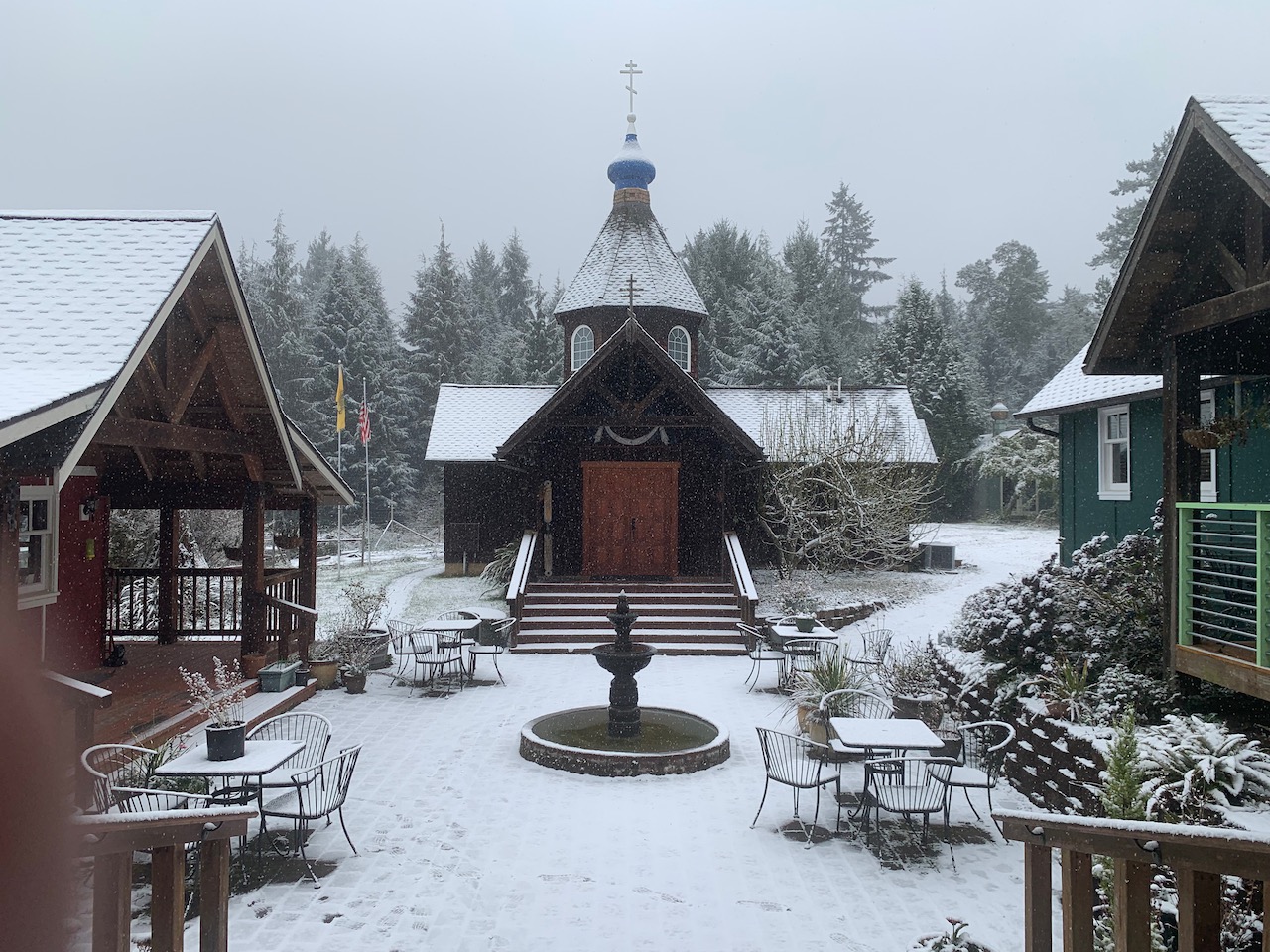Ancestral Sin vs. Original Sin

The fact that we Orthodox do not accept the doctrine of original sin as espoused in the West, does in no way suggest that we do not need to be born again (born anew). We believe, as did the Early Church Fathers, that we inherit only the results of Adam’s sin, not his guilt. This is known as ancestral sin because the sin of our first parents, Adam and Eve, resulted in our inheritance of death, sickness and an inclination toward evil. Christ’s death on the cross has its power, not in an atonement sacrifice, but in the conquering of the power of death. Death is trampled down by death. It is by Christ’s resurrection that a way was made for us to be transformed by contact with the Living God, thus becoming his children by adoption.
Although we do not refer to ourselves as “saved”, as do Evangelical Christians, we nevertheless believe that we are in need of salvation. (We believe salvation is a process.) Our understanding of sin in an ancestral way, which is distinct from the concept of original sin and the hereditary guilt that required, consequently, a substitutionary atonement-type of sacrifice, separates us doctrinally from Western Christianity.
Had there not been a fall, the Second Person of the Holy Trinity, the Logos (Word) would still have incarnated into the flesh and taken on our nature. For it is by this condescension by our Creator God to take on the nature of that which He created that we are given the opportunity of being deified (Saint Paul said we shall become as gods).
Our journey into the heart culminates in theosis, whereby we are joined in everlasting communion with the very God Who created us. Saint Athanasius of Alexandria said, “The Son of God became man, that we might become god.” In II Peter 1:4, we read that we have become “…partakers of divine nature.” Saint Athanasius further says that theosis is “becoming by grace what God is by nature.”
With love in Christ,
Abbot Tryphon

Wednesday November 30, 2022 / November 17, 2022
25th Week after Pentecost. Tone seven.
Nativity (St. Philip’s Fast). Food with Oil
St. Gregory the Wonderworker of Neo-Caesarea (266).
Venerable Nikon, abbot of Radonezh, disciple of St. Sergius (1426).
Sts. Acisclus and Victoria of Cordoba (4th c.).
Venerable Lazarus the iconographer of Constantinople (857).
Martyr Gobron (Michael) and 133 soldiers of Georgia (914) (Georgia).
St. Sebastian (Dabovich) of Jackson (1940) (Serbia).
Venerable Longinus of Egypt (4th c.).
St. Maximus (Maximian), patriarch of Constantinople (434).
Venerable Gennadius, abbot of Vatopedi, Mt. Athos (14th c.).
St. Gregory, bishop of Tours, and with him Venerable Aredius, abbot of Limoges and Venerable Vulfolaic, stylite of Trier (Gaul).
Venerable Hilda, abbess of Whitby (680) (British).
Martyrs Zachariah the Cobbler and his wife, Mary (3rd c.) (Greek).
Hieromartyr Basil, bishop of Hamah (282).
Martyrs Gregory, Victor, and Geminus of Heracleon in Thrace (304).
150 philosophers converted by St. Catherine, and who suffered in Alexandria (305).
St. John the Cobbler of Olumba, Cairo, and Sinai (7th c.).
The Scripture Readings
2 Thessalonians 2:1-12
The Great Apostasy
2 Now, brethren, concerning the coming of our Lord Jesus Christ and our gathering together to Him, we ask you, 2 not to be soon shaken in mind or troubled, either by spirit or by word or by letter, as if from us, as though the day of Christ had come. 3 Let no one deceive you by any means; for that Day will not come unless the falling away comes first, and the man of sin is revealed, the son of perdition, 4 who opposes and exalts himself above all that is called God or that is worshiped, so that he sits as God in the temple of God, showing himself that he is God.
5 Do you not remember that when I was still with you I told you these things? 6 And now you know what is restraining, that he may be revealed in his own time. 7 For the mystery of lawlessness is already at work; only He who now restrains will do so until He is taken out of the way. 8 And then the lawless one will be revealed, whom the Lord will consume with the breath of His mouth and destroy with the brightness of His coming. 9 The coming of the lawless one is according to the working of Satan, with all power, signs, and lying wonders, 10 and with all unrighteous deception among those who perish, because they did not receive the love of the truth, that they might be saved. 11 And for this reason God will send them strong delusion, that they should believe the lie, 12 that they all may be condemned who did not believe the truth but had pleasure in unrighteousness.
Luke 15:1-10
The Parable of the Lost Sheep
15 Then all the tax collectors and the sinners drew near to Him to hear Him. 2 And the Pharisees and scribes complained, saying, “This Man receives sinners and eats with them.” 3 So He spoke this parable to them, saying:
4 “What man of you, having a hundred sheep, if he loses one of them, does not leave the ninety-nine in the wilderness, and go after the one which is lost until he finds it? 5 And when he has found it, he lays it on his shoulders, rejoicing. 6 And when he comes home, he calls together his friends and neighbors, saying to them,‘Rejoice with me, for I have found my sheep which was lost!’ 7 I say to you that likewise there will be more joy in heaven over one sinner who repents than over ninety-nine just persons who need no repentance.
The Parable of the Lost Coin
8 “Or what woman, having ten silver coins, if she loses one coin, does not light a lamp, sweep the house, and search carefully until she finds it? 9 And when she has found it, she calls her friends and neighbors together, saying, ‘Rejoice with me, for I have found the piece which I lost!’ 10 Likewise, I say to you, there is joy in the presence of the angels of God over one sinner who repents.”
